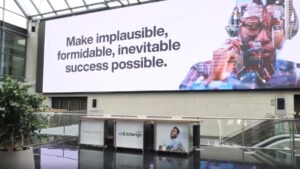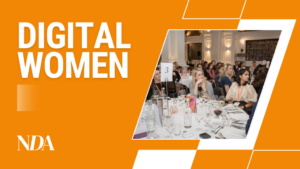NDA’s Digital Women series is talking to leaders from across our industry to understand the particular challenges, and opportunities faced by women. Next up is Julie Selman, SVP Head of EMEA, Magnite.
What is the biggest opportunity for women in your sector of the digital industry today?
There are many opportunities waiting for women in the digital industry, but first, there needs to be a greater push for true equality. Despite junior roles now being more balanced between men and women, the senior roles in the digital sector are still very male-dominated. Even now, I find I am often one of the few women in meetings I have.
There is a huge opportunity for the sector to benefit from having women in senior roles. Female leaders have shown they have large levels of empathy and strong leadership skills which benefit organisations, driving things like team performance, employee retention, and of course revenue.
We need a greater representation of women but also people of colour, sexual orientation and so on, to create more diverse leadership teams and balance the industry. It’s been proven over and over again that diverse representation leads to better results, with the latest McKinsey report revealing companies with more than 30 percent women executives were more likely to outperform companies where this percentage ranged from 10 to 30.
What is the biggest challenge to you as a woman in the digital industry and how are you overcoming it?
This isn’t necessarily specific to the digital industry, but a big challenge that needs addressing is the way in which we work. With very few women in senior positions, certain working styles or systemic issues aren’t challenged or changed enough to accommodate both men and women.
The standard nine-to-five structure of the working day can be challenging and is not always optimising productivity. The pandemic showed us that we can change how we traditionally work however, it is worth noting that this didn’t necessarily benefit women. A lot of working women had to juggle both working from home and being the primary carer for their children.
The way in which we support women in the UK needs to change drastically, with expensive childcare and the gender pay gap making it difficult for women to stay in work. How can it be fair that we have to choose between working, and spending all of our earnings on childcare, or sacrificing our careers?
What three things could employer companies do to make the digital industry better for women?
- While this may not be possible for some smaller companies, larger corporations should consider the length and scope of their maternity leave policy. The financial impact of being the traditional primary carer for children stops many women from reaching their full potential in their careers.
- Guarantee a smooth transition back to work by incentivising women to come back rather than reducing roles or responsibilities. Give women more opportunities once they return. Women work harder than anyone else because they have to juggle so much at once. Employers should also change often archaic attitudes on working and introduce true flexible working to help accommodate their return to work.
- Hold men more accountable for supporting women. If men make up most of the decision-makers, then they have a huge part to play in bringing true equality to the industry. Practices like encouraging men to take paid paternity leave will positively impact women in the sector. Starting at the top, senior managers should lead by example and proactively want to inspire/build trust for both men and women in the workforce. The amount of time I hear: “I don’t know how you do it” as a compliment from men around me is exhausting. My husband never gets this comment or question when he says he has three children as it is just assumed he has a wife or partner who manages that aspect of his life.
What support structures and organisations are most important and effective to you as a woman in the digital industry?
For me, it is really important to see other women in positions I want to be in and have that representation across the industry. I am proud to be a part of networks like Bloom and Digital Leading Ladies, where I am part of a core network of women in the digital industry and can learn from others. I am also really impressed by the Women in Programmatic network as they organise fantastic events and bring important issues to light.
An effective way organisations can give women more visibility is to have female leaders and employees as spokespeople representing the company at conferences and events. We need proper representation with women speaking at big industry events to encourage other women. Representation is so important – I find it really disheartening to only see a small number of female speakers at events. When some conference organisers say they could not find women to participate, it really saddens me. Conference organisers should demand sponsors send more female spokespeople to these industry events.
What is the biggest misconception about women in the digital industry?
The biggest misconception is that because we are in the 21st century, everyone has equal opportunities. Unfortunately, this isn’t the case; companies need to be more aware of the inequalities. Gender bias starts at a very young age and follows you in the working world.
It is the responsibility of those in decision-maker positions to look beyond what is familiar, to try to understand the inequalities their employees might face and tackle them head on. Senior leaders should encourage women to ask for promotions and apply for those positions they would never think to apply for themselves because they are conditioned to be polite and not ask too much. Employers should encourage employees to ask for time off for childcare duties and emergencies, to have flexible hours and to be promoted after having a baby etc. I have seen firsthand that if you help people see new opportunities and make them believe in themselves, they will excel and achieve fantastic things.












